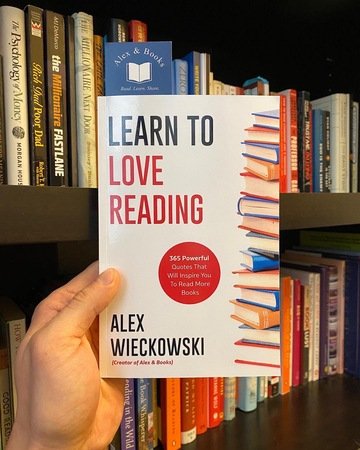Learn To Love Reading is now available on Amazon!
All of us know reading is good for us and something we should do more often, but for whatever reason, it's never our top priority. This book will change that.
Learn To Love Reading is a collection of quotes that will help you develop a passion for books. It's a pick-me-up for those days when you need a little extra motivation to grab a book instead of your phone. Inside this book, you'll find 365 amazing quotes that will remind you of the wonderful treasures books hold, show you the magical places books can take you, teach you why books are the key to success in any domain, and inspire you to become a lifelong reader.
You'll discover quotes from:
Wise philosophers like Cicero and Socrates
Billionaire entrepreneurs like Elon Musk and Bill Gates
World leaders like Nelson Mandela and Barack Obama
Brilliant investors like Naval Ravikant and Warren Buffett
Bestselling authors like Jordan Peterson and James Clear
Legendary writers like Ernest Hemingway and Victor Hugo
And many more extraordinary people.
Here are a few quotes from the book:
“How can we better employ our time than by reading books?”
–A. EDWARD NEWTON
“Reading is essential for those who seek to rise above the ordinary.”
–JIM ROHN
“Read what you love until you love to read.”
–NAVAL RAVIKANT
“If you love to read, or learn to love reading, you will have an amazing life. Period.”
–ANNE LAMOTT
PS: If you want to learn more about my book, listen to this podcast.
So if you want to develop a love for reading, want to start reading more books, or are already a bibliophile, this book is for you.










